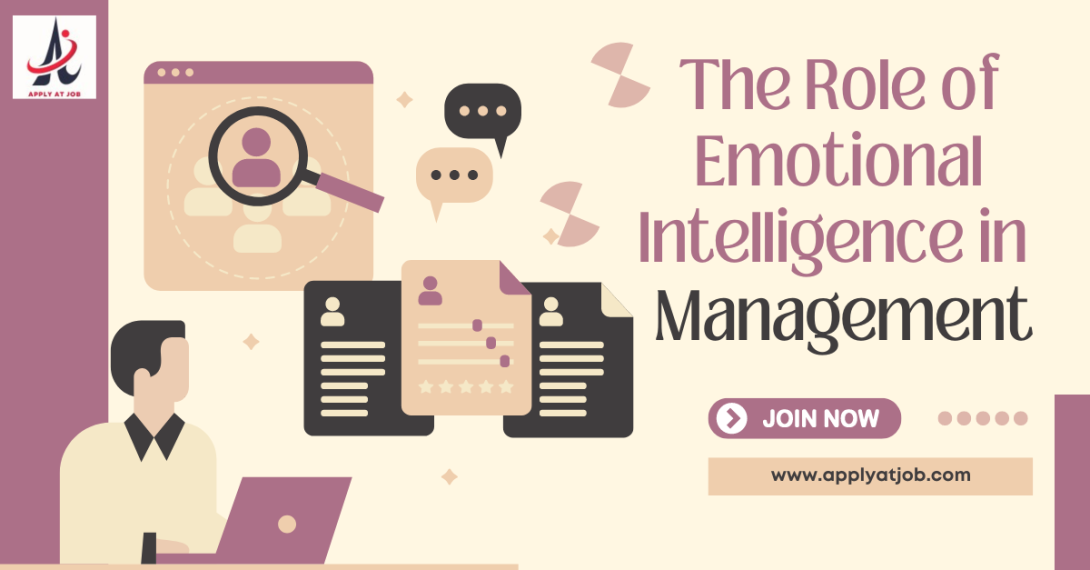
Emotional Intelligence's Place in Management:
Technical abilities alone are no longer adequate for effective management in today's changing work environment. An essential quality for managers looking to lead effectively, create a healthy workplace culture, and motivate team members is emotional intelligence (EI). However, what is emotional intelligence precisely, and why is it crucial for managers?
Understanding Emotional Intelligence:
Emotional intelligence refers to the ability to recognize, understand, and manage our own emotions, as well as the emotions of others. It encompasses several key components:
1. Self-Awareness: Understanding your own emotions, strengths, and weaknesses.
2. Self-Regulation: Managing your emotions in healthy ways and adapting to changing circumstances.
3. Motivation: Harnessing emotions to stay focused on goals and remain resilient in the face of setbacks.
4. Empathy: Recognizing and understanding the emotions of others, which helps in responding appropriately.
5. Social Skills: Building strong relationships and managing interpersonal interactions effectively.
Why Emotional Intelligence Matters for Managers?
1. Enhanced Communication:
Superior communicators are those who possess strong emotional intelligence. They are able to read nonverbal signs, decipher team members' underlying feelings, and react in a way that encourages candid and open communication. This results in improved teamwork, fewer misunderstandings, and better communication.
2. Better Resolution of Conflicts:
In every team environment, conflict is unavoidable. Emotionally intelligent managers are able to resolve disputes with compassion and understanding. They handle conflicts by concentrating on coming to amicable agreements rather than ratcheting up the hostilities, which keeps the workplace peaceful.
3. Enhanced Team Morale:
Managers with high emotional intelligence (EI) are able to identify and meet the emotional needs of their staff members. They also foster a positive work environment where staff members feel appreciated and driven.
4. Better Decision-Making:
EI assists managers in making better decisions by taking into account the emotional implications of their choices. Self-aware and empathic managers are more likely to take into account the thoughts, feelings, and opinions of their subordinates.
5. Effective Leadership:
Leadership is more than just setting objectives and assigning tasks; it also involves inspiring and guiding individuals. Managers with high EI are able to connect with their team on an emotional level, which improves their capacity to set an example, inspire their team, and motivate them.
Making Progress in Emotional Intelligence:
Although emotional intelligence is a talent that may be taught and refined over time, some people may naturally possess it. The following are some methods to raise your emotional intelligence:
Consider Your Feelings:
Study your emotional reactions to various events on a regular basis and take into account how they affect your actions and choices.
Request Input: Get input on your emotional exchanges from team members and coworkers, then use it to your interactions.
Develop Empathy: Make an attempt to relate to and comprehend the feelings and viewpoints of people. Be a good listener by acknowledging and validating their emotions.
Improve Your Communication Abilities:
Concentrate on enhancing your communication skills, both spoken and non-spoken. Be mindful of your voice tone, body language, and other indicators that can impact interactions.
Manage Stress: Develop techniques for managing stress and maintaining emotional balance. Practices such as mindfulness, meditation, and exercise can help regulate your emotional responses.
Conclusion:
Being emotionally intelligent is more than just a catchphrase; it's essential to efficient management. You may become a more compassionate leader, forge closer bonds with others, and foster a happier, more productive workplace by developing your emotional intelligence (EI). Investing in your emotional intelligence is an investment in the well-being of your team as a whole and in your managerial performance. Accept the power of emotional intelligence (EI) and see how it changes the way you lead and inspires higher success in your group.




